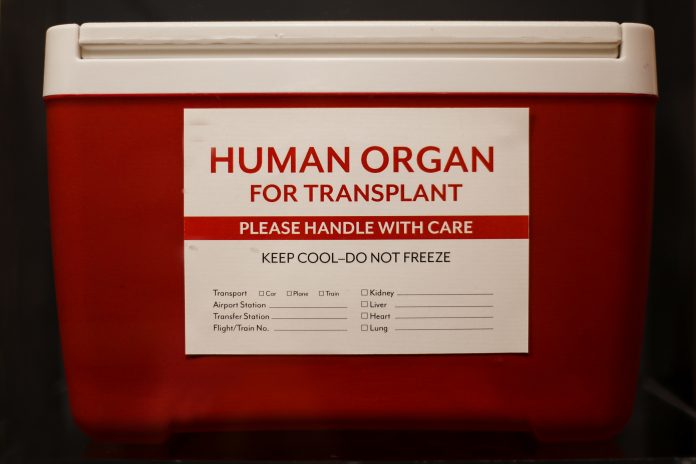Organ transplants performed during the first wave of COVID-19 fell by a third compared to 2019, according to a new study
According to a new global study presented at the European Society for Organ Transplantation (ESOT) Congress 2021, organ transplantations performed during the first wave of COVID-19 in 2020 fell by 31% when compared to the previous year in 2019.
Researchers examined international data from 22 countries and found that kidney transplantation in living donors showed the largest reduction by 40% across nearly all countries and liver by 33%.
In deceased donors, there was a reduction in kidney transplants by 12%, liver by 9%, lung by 17% and heart by 5%.
48,239 patient life-years lost
The estimated numbers of life-years lost were 37,664 years for patients waitlisted for a kidney, 7,370 for a liver, 1,799 years for a lung, and 1,406 for a heart.
Professor Alexandre Loupy, head of the Paris Translational Research Center for Organ Transplantation and last author of the study, said: “Living donor transplantation, which reduced more substantially, requires significant resources and planning compared to deceased donor transplantation. This is extremely difficult during a pandemic when resources are stretched and staff redeployed. There are also major ethical concerns for the wellbeing and safety of the donor.
“It’s clear that there are many indirect deaths associated with Covid-19 and our study confirms that the pandemic has far-reaching consequences on many medical specialties.”
Dr Olivier Aubert, Assistant Professor at the Paris Translational Research Centre for Organ Transplantation and lead author of the study, commented: “The first wave of Covid-19 had a devastating impact on the number of transplants across many countries, affecting patient waiting lists and regrettably leading to a substantial loss of life.”
“Beyond the near universal reduction in transplant activity, certain countries and regions managed to carry-out procedures despite major challenges presented by the pandemic. These findings warrant further analysis on a regional, national and global level to understand why reductions did or did not occur.
“Understanding how different countries and healthcare systems responded to Covid-19-related challenges can facilitate improved pandemic preparedness and how to safely maintain transplant programmes to provide life-saving procedures for patients.”
The full study has been published in the Lancet Public Health Journal: COVID-19 Pandemic Consequences On Worldwide Organ Transplantation: a population-based study.








